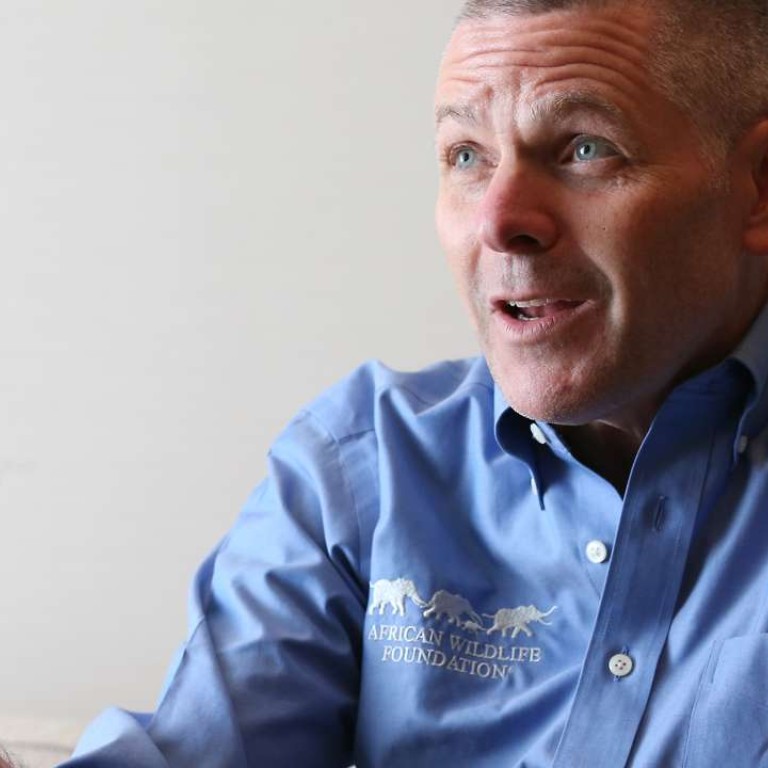
‘The future of elephants is in the hands of Hong Kong’: top wildlife advocate turns up heat on city over ivory trade
Patrick Bergin, who advises President Obama on the illegal industry, visits city to call for quicker progress towards full ban
Hong Kong is under international pressure to speed up a full ban of the ivory trade, as a wildlife trafficking adviser for the US president criticised the government’s five-year action plan as too slow.
Patrick Bergin, chief executive of the African Wildlife Foundation, urged the Hong Kong government to speed up measures and end the business in one or two years. “The future of elephants and the future of ivory are really in the hands of the people and the government of Hong Kong,” he said in an interview with the Post.
“We thank the Hong Kong government for what you are doing, but it is not fast enough ... With respect, it’s not good enough,” Bergin said, noting that Hong Kong is the world’s largest market for ivory.
Over the past hundred years, Africa has lost 96 per cent of its elephants, whose numbers have plummeted from 10 million to some 400,000. “When you have lost 96 per cent of the resource, you won’t say we will phase this thing out, slowly, over the coming five years,” Bergin said. “This is an emergency.”
The American activist, who has lived in Africa for the past three decades, gave the example of the US, where Obama imposed an almost full ban in about two years, and he said a similar time frame would also be reasonable in Hong Kong.

The government has said the proposed time frame is fair, and allows traders to get rid of their stocks, while avoiding legal challenges from a trade that is subject to a licensing regime to possess and sell.
There are reportedly 370 licence holders in Hong Kong, who still have 70 tonnes of legal ivory between them. But Bergin said a lot of that ivory “can’t be” legal.
“The maths does not work,” he said. “There have only been two sales of ivory in the last 30 years that had been legal and the amount of ivory available for sales exceeds those two experimental sales.”
He said the conservation community is so against ivory trade of any kind because it provides for laundering ivory. “It creates the possibility of doubt ... The shopkeeper goes ‘oh, this is legal ivory’. There is no way to differentiate legal and illegal ivory. The only way to solve the problem is to shut down the trade completely,” he said.

Bergin was in Hong Kong this week to talk to influential people, following a visit to Beijing where he met government officials and diplomats.
“What we need is an all-of-society response to the issue. It’s not just about government, it’s also about the individual citizens, the shopkeepers… We need all society to understand this issue around ivory, so people stop buying and trading ivory,” he said.
Poachers kill 30,000 elephants every year to meet the global demand for ivory, with China the largest consumer. Interpol estimated the illegal wildlife trade is the fourth most lucrative black market in the world.
Ivory will be under discussion at the CITES COP17 meeting, a convention on international trade in endangered species, which started in South Africa on Saturday and will run until October 5.
But Hong Kong, Bergin said, could make a much greater change than any international conference or agreement. “We need individual countries to take action,” he said.
“I think the behaviour of Hong Kong could be powerful in providing an example and leading. If Hong Kong understands its responsibility to the global community in being part of the solution, that behaviour could have an impact in the rest of China.”
Last year, Chinese President Xi Jinping promised measures to halt the domestic trade of ivory, but no timeline was announced.

